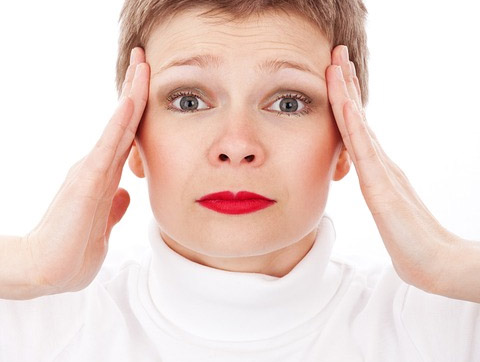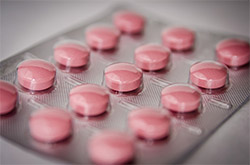
Patients are referred to me for answers to their headache pain, jaw problems (TMJ), clenching or bruxing, among other symptoms. Many other find me on the web or through the website.
The effect of disorders in our body cause symptoms (effects). The cause of that symptom may be close to the pain or not. For instance, a headache on one side can be the effect of a shoulder problem, neck problem, TMJ problem, hormones, or conditions in the brain. Getting to the cause can sometimes lead to evaluation of related muscles, joints, and body areas from the headache pain.
As a Dentist who has limited my practice to orofacial pain and sleep apnea I see a variety of complex symptoms in patients. Most have seen other doctors without relief. That information is important because I can use it to eliminate an area of the head and neck that is not causing the pain or dysfunction. The “cause” didn’t produce the “effect”.
 Much of medicine has become more focused on suppressing “effects” with medication rather than recognizing biomechanical/physiologic problems that could be causing effect.
Much of medicine has become more focused on suppressing “effects” with medication rather than recognizing biomechanical/physiologic problems that could be causing effect.
In other cases, the treatment of the problem is inappropriate for the cause. Such as recommending avoiding chewing for a dislocated TMJ disc. It might help reduce the pain, but it won’t restore the joint.
An increasing cause of TMJ damage and pain is being recognized to be sleep apnea. How do those relate you might ask.
Dr. Abeles, a dentist also focusing on TMJ and sleep disorders reports in an article in Dental Sleep Review Magazine from July 2015 these statistics:
75% of people with TMJ dysfunction have signs that suggest sleep disordered breathing; a narrow maxillary arch (upper arch of teeth) is 90% predictive of OSA; and a retruded chin is 70% predictive of OSA.
People with sleep apnea are known to clench and sometime brux their teeth as a result of the sleep apnea and lack of oxygen. Over time, this repeated clenching causes damage to the TMJ which then becomes painful in the muscles or causes the disc in the joint to break down. The symptoms of a damaged joint can be bite problems, headaches, ear aches, neck pain, among other symptoms. Reports of snoring, gasping, waking up tired, and a partner’s report of “stopping breathing” are almost 100% diagnostic of sleep apnea.
Having a sleep study done is the only way to determine the severity of sleep apnea.
What Causes Pain in TMJ Disorder?
In a patient coming to me shows TMJ damage but also has neck problems, headaches in the morning, neck pain, clenching and bruxing might be reporting the “effects” of sleep apnea. Treating the cause is to diagnose and treat the apnea with CPAP or a custom sleep apnea appliance. The symptoms will often resolve by addressing the underlying cause. Of course, damage in the TMJ and neck joints can also require treatment to restore normal motion. But focusing only on the symptoms won’t get to the root of the problem
Those of us focusing on TMJ/Sleep Apnea see organizations that promote suppressing TMJ symptoms over proper orthopedic and neuromuscular treatment and actually advise patient not to treat the TMJ damage. They advocate stress reduction therapy, anti-anxiety and antidepressant medication/ pain medication as “treatment”. It may be necessary as an adjunct after structural restoration of the TMJ.
If you suffer from chronic pain problems in the head and neck, and haven’t gotten relief from basic treatments such as a nightguard, rest (for a few days only), etc; there may be a structural cause to your symptoms that hasn’t been addressed.
In such cases it’s recommended that you visit a Sleep apnea or TMJ specialist in your area.



